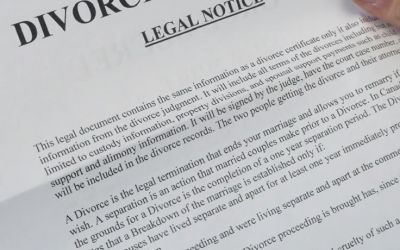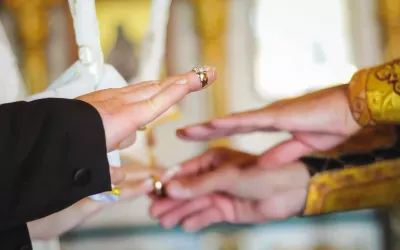Role of Wali for Nikah in Islamic Marriages in the UAE
Table of Contents ▼
Is the wali for nikah just a tradition, or an absolute requirement for Islamic marriages in the UAE? Let’s explore what you need to know.
For Muslim couples planning their Islamic nikah in the UAE, one of the most frequent and important questions is about the necessity of a wali (guardian) during the nikah ceremony.
This is not only a matter of religious tradition but also a significant legal requirement. Understanding the role and necessity of the wali for nikah is vital to ensure your marriage is valid and recognized.
In this article, we’ll clarify why having a wali for nikah in the UAE is mandatory and explain who can act as a wali, along with special cases and legal implications.
Is Wali for Nikah Mandatory in the UAE?
Under the UAE’s Personal Status Law, which governs family and marriage matters, the presence and consent of a wali for nikah are legally required for an Islamic marriage to be considered valid. This law follows the principles of Islamic jurisprudence and is strictly enforced across all emirates.
For couples, this means that without a wali’s involvement, the nikah contract will not be legally recognized. It is crucial to understand that the wali for nikah is not a mere formality but an essential legal and religious element in the marriage process.
The Religious and Traditional Role of the Wali for Nikah
The concept of a wali for nikah comes from Islamic teachings that stress the importance of family involvement in marriage decisions. The wali serves as a guardian who ensures that the bride’s rights and interests are protected throughout the marriage process.
His role is to make sure the bride consents freely, fully understands the implications of marriage, and that her welfare is safeguarded. This guardian function is not simply symbolic; it holds spiritual significance, reinforcing the respect and seriousness of the nikah contract.
Who Can Serve as a Wali for Nikah?
Islamic law and UAE regulations set clear criteria for who can act as a wali for nikah:
- The wali must be a Muslim male relative of the bride.
- He must be of sound mind and mature age to understand the responsibilities involved.
- He should have a good reputation and knowledge of Islamic principles.
The traditional order of priority for a wali generally follows this sequence:
- The bride’s father (considered the primary wali).
- The paternal grandfather.
- The brother.
- The paternal uncle.
- Other male relatives on the father’s side.
This hierarchy highlights the Islamic emphasis on paternal family connections and the protective role assigned to male relatives in the marriage process.
Key Responsibilities of the Wali During the Nikah Ceremony
During the nikah ceremony in the UAE, the wali’s responsibilities include:
- Granting formal consent to the marriage on behalf of the bride.
- Participating actively in negotiating the mahr, the dowry agreed upon in the marriage contract.
- Representing the bride’s interests and rights during contract discussions to ensure fairness.
- Being physically present at the nikah ceremony, which is a legal prerequisite for the marriage to be valid.
- Signing the marriage contract as a principal party, affirming the legal and religious legitimacy of the union.
The wali’s involvement is not just ceremonial; it is a core legal requirement that directly impacts the validity of the nikah under UAE law.
When Does a Court-Appointed Wali Become Necessary?
The UAE legal system provides a solution for situations where a bride does not have an eligible wali available. In such cases, a court can appoint a wali for nikah, typically a judge known as a qadi. This can happen under circumstances such as:
- The bride has no living male relatives who qualify as a wali.
- The natural wali refuses consent to a marriage without valid justification.
- The natural wali is unavailable due to factors like residing abroad or incapacity.
- The bride has recently converted to Islam and does not have Muslim male relatives who qualify as wali.
This provision ensures that the requirement for a wali does not become an obstacle to marriage, while maintaining the traditional Islamic structure and legal standards.
Is the Wali Requirement Waivable?
According to UAE law, the wali for nikah requirement cannot be waived or bypassed for Muslim women marrying in the country. This rule applies to:
- Emirati nationals marrying within the UAE.
- Expatriate residents who plan to marry in the UAE.
- Visitors who opt for Islamic marriage ceremonies in the country.
The wali’s presence is considered fundamental for the marriage contract’s validity and cannot be omitted as a matter of personal preference.
Legal Consequences of Marrying Without a Wali for Nikah
Attempting to conduct an Islamic marriage without a wali for nikah in the UAE can lead to serious legal repercussions:
- The marriage will not be officially registered with the relevant government authorities.
- Spouses may not receive the legal protections that marriage ordinarily provides.
- The marriage might not be recognized for residency, visa, or other administrative purposes.
- Legal complications could arise if the marriage ends or disputes occur, due to the lack of formal recognition.
These consequences underscore the importance of fully understanding and complying with the wali for nikah requirement to protect the rights of both parties.
Honoring Tradition While Planning Your Nikah
Although legal requirements can seem complex, your nikah is ultimately a sacred occasion celebrating love, commitment, and family unity within Islamic tradition. The wali for nikah embodies the involvement and support of family, symbolizing the continuation of tradition as you begin your married life.
At Easy Wedding, we specialize in guiding couples through both the legal and religious aspects of the nikah process.
Ready to plan your perfect nikah in the UAE—honoring both legal mandates and Islamic tradition? Contact us today, and let us help create a marriage celebration that truly reflects your unique love story.


